2018.5.29 加筆
すでに何度か紹介しているユヴァル・ノア・ハラリ氏が2018年1月末、ダボス会議に招かれて講演を行った。
ヒアリングの練習にもなるのでご覧になってはいかがだろうか?内容は非常に興味深い。「生体=アルゴリズム」論に基づく情報技術と生命科学の結合が、誰も直面したことのない、まったく新たな事態を呼び込んでいると語る。本講演の尺は20分程度。
ハラリ氏講演本編
今回は講演の文字起こしをもとにハラリ氏の刺激的な議論について考えてみよう。なお、逐語訳はわずらわしいと思うので適宜要約を交えながら全体を紹介する。
人間の未来は人間のものになるだろうか?
I want to talk to you today about the future of our species and the future of life. We are probably one of the last generations of Homo sapiens. Within a century or two the earth will be dominated by entities that are more different from us than we are different from Neanderthals or from chimpanzees because in the coming generations we will learn how to engineer bodies and brains and minds.
This will be the main products of the economy of the 21st century economy, not textiles and vehicles and weapons but bodies and brains and minds.
私たちはホモサピエンスの最後の世代になるかもしれません。いまから1世紀か2世紀先の地球は、ホモサピエンスとは違う何者か、私たちがネアンデルタール人やチンパンジーと違うより、もっと大きく違う何者かによって埋め尽くされているはずです。
その何物かはきっと21世紀を代表する産物になるでしょう。服やクルマや武器を生み出すのではありません。経済の対象は私たちのからだ、脳、こころに移るのです。
データを制する者は未来を制す
Now how exactly will the future masters of the planet look like? This will be decided by the people who own the data, those who control the data control the future, not just of humanity but of the future of life itself because today data is the most important asset in the world.
未来を制するのはデータを掌握する者になります。データを掌握する者が人間の未来を掌握し、生命そのものの未来を左右するでしょう。今日の世界でデータほど重要な資産は存在しないからです。
重要資産は土地から機械へ、機械からデータへ
In ancient times land was the most important asset; and if too much land became concentrated in too few hands, humanity split into aristocrats and commoners. Then in the modern age in the last two centuries, machinery replaced land as the most important asset; and if too many of the machines became concentrated in too few hands, humanity split into classes, into capitalists and proletarians. Now data is replacing machinery as the most important asset; and if too much of the data becomes concentrated in two for your hands, humanity will split not in two classes, but it will split into species in two different species.
昔は土地が最も大事な資産でした。土地の占有が進み過ぎた結果、貴族と平民が生まれました。過去2世紀ほどの間は土地から機械が最大の資産になり、機械が寡占されると今度は階級、すなわち資本家と労働者が生まれました。では未来はどうなるかといえば、データの占有が進みすぎた場合、人間は階級ではなく違う種に別れていく可能性が高くなります。
なぜデータがそこまで重要なのか?
Now why is data so important? It’s important because we’ve reached the point when we can hack not just computers we can hack human beings and other organisms. There is a lot of talk these days about hacking computers and email accounts and bank accounts and mobile phones, but actually we are gaining the ability to hack human beings.
なぜデータがそんなに重要かといえば、データによってコンピュータをハックできるどころか、人間やその他の有機体までハックできるからです。個人データが盗めるどころではなく、人間そのものをハックできる能力が開発されたからです。
Now what do you need in order to hack a human being?
You need two things: You need a lot of computing power and you need a lot of data, especially biometric data, not data about what I buy or where I go, but data about what is happening inside my body and inside my brain.
人間をハックするにはどうすればいいか?2つの能力が必要です。ひとつは膨大な計算能力。もうひとつは膨大なデータ、とくに生体計測(バイオメトリック)データです。(バイオメトリックデータとは)どこで何を買った、どこへ行ったといったデータではなく、体内で起きていること、脳内で起きていることに関するデータです。
生体データ解析で人間ハッキングが可能に
Until today nobody had the necessary computing power and the necessary data to hack humanity even if the Soviet KGB or the Spanish Inquisition followed you around everywhere 24 hours a day, watching everything you do, listening to everything, you say still they didn’t have the computing power and the biological knowledge necessary to make sense of what was happening inside your body and brain and to understand how you feel and what you think and what you want.
現代までは、たとえソ連のKGBが四六時中あなたを監視していたとしても、あなたの行動からあなたの体内や脳内で起きていることはうかがい知れませんでした。あなたの感情や思想を読み取ることは不可能でした。
生命体はアルゴリズムに還元された
But this is now changing because of two simultaneous revolutions: on the one hand, advances in computer science, especially the rise of machine learning and AI are giving us the necessary computing power; and at the same time advances in biology, especially in brain science are giving us the necessary understanding of biolometrics, so that you can really summarize a hundred and fifty years of biological research since Charles Darwin in three words: organisms are algorithms.
でもいま2つの革命的変化が起きて事情は変わりつつあります。まずコンピューターサイエンスの進化。とくに機械学習とAIの発展で計算応力が飛躍的に高まっています。同時に生命科学の進化。とくに脳科学の発展でバイオメトリックデータの解析が可能になりました。実際、ダーウィン以降150年間の生命分野の知見は「生命体はアルゴリズム」、この単純なフレーズに要約可能になっています。
人間より人間をよく知るアルゴリズム?
This is the big insight of the modern life sciences that organisms were the viruses of bananas or humans they are really just biochemical algorithms and we are learning how to decipher these algorithms. Now when the two revolutions merge, when the infotech revolution merges with the biotech revolution, what you get is the ability to hack human beings; and maybe the most important invention for the merger of infotech and biotech is the biometric sensor that translates biochemical processes in the body or in the brain into electronic signals that a computer can store and analyze. And once you have enough such biometric information and enough computing power, you can create algorithms that know me better than I know myself.
生命体がアルゴリズムに還元できる、人間を生物化学的なアルゴリズムに翻訳できるという発見は、生命科学のもたらした革命的な知見です。コンピューター科学の進化と生命科学の進化が合流した時点で、人間のハッキングが可能になったのです。とくに大きな意味をもったのはバイオメトリック・センサーの実用化でした。このセンサーによって体内もしくは脳内のデータを電子信号に変換し、機械に保存して分析できるようになったからです。得られた生体データを、強大なデータ処理力をもつコンピュータにかければ、私より私についてよく知るアルゴリズムの完成です。
Humans really don’t know themselves very well, and this is why algorithms have a real chance of getting to know ourselves better. We don’t really know ourselves. To give an example, when I was 21, I finally realized that I was gay after living for several years in denial and this is not exceptional. A lot of gay men live in denial for many years, and they don’t know something very important about themselves. Now imagine the situation in 10 or 20 years when in algorithm can tell any teenager exactly where he or she is on the gay-straight spectrum and even how malleable this position is. The algorithm tracks your eye movements, your blood pressure, your brain activity and tells you who you are.(中略)
人間が自分が思っているほど自分を知りません。だからアルゴリズムにチャンスが生まれるのです。たとえば、私の場合、自分がゲイであることが最終的にわかったのは21歳のときです。それまで数年は否定し続けました。私だけではなく多くのゲイが同じように自分を否定し続けます。ということは、自分の重要な何かについて知らないのと同じなのです。いまから10年先、20年先には、眼球の動きや血圧や脳内活動のデータから、あなたがどの程度ゲイでどの程度ノンケか、全体の区分ではどの辺に位置するかをアルゴリズムが教えてくれるかもしれません。(中略)
デジタル独裁政治が生まれる可能性
You wouldn’t even know that this was happening but they will know and this information will be worth billions. Once we have algorithms that can understand me better than I understand myself, they could predict my desires, manipulate my emotions and even take decisions on my behalf. And if we are not careful, the outcome might be the rise of digital dictatorships.
人間をハッキングできるからって何だとお思いかもしれません。しかしこれは現実であり、生体情報は企業にとって何十億ドルもの価値があるのです。人間よりよく人間を知るアルゴリズムがあれば、当然、そのアルゴリズムは私の欲望を予測できます。また私の感情を操作できます。私の代わりに意思決定を下せます。気をつけないと、その帰結するところはデジタル独裁です。
政治とは大局的に見れば情報処理方法の違いにすぎない
In the twentieth century democracy generally outperformed dictatorship because democracy was better at processing data and making decisions. We are used to thinking about democracy and dictatorship in ethical or political terms but actually these are two different methods to process information. Democracy processes information in a distributed way: It distributes the information and the power to make decisions between many institutions and individuals. Dictatorship on the other hand concentrates all the information and power in one place.
一般論としていえば、20世紀は独裁制より民主制がうまく機能した時代でした。民主制の方がデータ処理に長け、意思決定がしやすかったからです。私たちには政治体制の違いを倫理的に考えるクセがついていますが、よく考えれば、政治体制の違いとは情報処理方法の違いにすぎません。民主制とは多くの組織や個人に分散して情報を処理し、権力を行使するシステムです。独裁制とは情報を一局に集中し、権力を行使するシステムです。
デジタルな独裁制が敷かれる可能性も否定できない
Now given the technological conditions of the 20th century, distributed data processing worked better than centralized data processing, which is one of the main reasons why democracy has outperformed dictatorship and why for example the US economy has outperformed the Soviet economy.
But this is true only under the unique technological conditions of the 20th century. In the 21st century new technological revolutions, especially AI and machine learning, might swing the pendulum in the opposite direction. They might make centralized data processing far more efficient than distributed data processing and if democracy cannot adapt to these new conditions, then humans will come to live under the rule of digital dictatorships.
And already at present we are seeing the formation of more and more sophisticated surveillance regimes throughout the world, not just by authoritarian regimes but also by democratic governments. The US for example is building a global surveillance system while my home country Israel is trying to build a total surveillance regime in the West Bank.
20世紀の技術条件下では、中央処理より分散処理の方がうまく行きました。それでデモクラシー社会が優勢になり、アメリカ経済がソ連経済に勝ったわけです。
でも、それは20世紀という技術条件下のみに当てはまることで、21世紀になったいま、AIや機械学習といった革新的技術が実用化されています。民主制をうまくその変化に適応させないと、分散処理より中央処理の方が効率的だということになって、デジタル独裁体制が敷かれるかもしれません。
実際、独裁国家だけでなくアメリカのような民主的な国家でも監視体制が強化されています。私の国イスラエルでもヨルダン西岸に対岸のパレスチナを見張る監視システムが構築されつつあります。
一部の人間がデータ主権を握る恐ろしさ
But control of data might enable human elites to do something even more radical than just build digital dictatorships by hacking organisms. Elites may gain the power to re-engineer the future of life itself because once you can hack something, you can usually also engineer it; and if indeed we succeed in hacking and engineering life, this will be not just the greatest revolution in the history of humanity: This will be the greatest revolution in biology since the very beginning of life four billion years ago.
生命体情報のハッキングによるデジタル独裁。しかしデータの掌握が可能になれば、エリート層はもっと極端な行動を起こさないとは言い切れません。たとえば、彼らが生命の未来を人為的に作り替えようとする可能性があります。何かをハックできることは通常、それを作り替えられることを意味するからです。もし生命のハッキングとエンジニアリングに成功したら、人類史上最大の革命になるばかりではありません。生物学的観点からいって、40億年の生命史最大の革命になります。
革命的変化:生命の自然淘汰から人工計画へ
For four billion years nothing fundamental changed in the basic rules of the game of life. All of life for four billion years dinosaurs, amoebas, tomatoes, humans, all of life was subject to the laws of natural selections and to the laws of organic biochemistry.
40億年の間、生命のゲームの規則は基本的に不変でした。生物種を問わず、生命はすべて自然淘汰の法に従い、有機生命科学の法則に従ってきたからです。
But this is now about to change. Science is replacing evolution by natural selection with evolution by intelligent design, not by the intelligent design of some God above the clouds, but by the intelligent design of our own. The intelligent design of our clouds, such as the IBM cloud and the Microsoft cloud, are the new driving forces of evolution.
ところがいま、生命ゲームの規則が根底から変わりつつあります。人間の科学が未来を人工的に設計できる可能性が開かれたからです。そこでは、どこかの神さまの計画ではなく、人間自らの計画が自然淘汰による進化を代替することになります。人間知性のクラウドが進化の推進役になるのです。
At the same time science may enable life, after being confined for four billion years to the limited realm of organic compounds, to break out into the inorganic realm. After four billion years of organic life shaped by natural selection, we are entering the era of inorganic life shaped by intelligent design. This is why the ownership of data is so important.
同時に、生命は科学を通じて、40億年もの間閉じ込められてきた檻(物理的制約)から、非有機的な領域へ飛び出していけるかもしれません。自然淘汰が決定する未来の代わりに、人間が設計する未来を選び取る可能性が出てきているのです。
If we don’t regulate it, a tiny elite may come to control not just the future of human societies but the shape of life-forms in the future.
Then how can we regulate the data, the ownership of data? We’ve had 10,000 years of experience regulating the ownership of land; we have had a few centuries of experience regulating the ownership of industrial machinery; but we don’t have much experience in regulating the ownership of data which is inherently far more difficult because, unlike land and unlike machinery, data is everywhere and nowhere at the same time. It can move at the speed of light and you can create as many copies of it as you want, so does the data about my DNA, my brain, my body, and my life. Does it belong to me or to some corporation or to the government or perhaps to the human collective?
いま然るべき規制を考えないと、一握りのエリートが人間社会を超えて生命体のかたちそのものも変えてしまう恐れがあります。
ではデータの掌握を規制するにはどうすればいいでしょうか?土地や機械に関する経験は豊富にありますが、データの規制については経験も少ない上に、規制そのものが困難です。データはどこにでも存在すると同時にどこにも存在しないようなものであり、高速で移動可能で、いくらでも好きなだけ複製をつくれます。そんなとき、私のDNAデータ、私の脳のデータ、私のからだのデータ、私の命のデータ、それらはいったい誰のものでしょう?私のものでしょうか、どこかの会社のものでしょうか、それとも政府のもの?人類の共有物?
バイオメトリック・データのような重要情報を誰がどう管理すべきか?
At present big corporations are holding much of the data and people are becoming worried about it. But mandating governments to nationalize the data may curb the power of the big corporations only in order to give rise to digital dictatorships.
Politicians are like musicians and the instrument they play on is the human emotional and biochemical system; a politician gives a speech and there is a wave of fear all over the country; a politician tweets and there’s an explosion of anger and hatred; now I don’t think we should give these musicians most sophisticated instruments to play on.
And I certainly don’t think they are ready to be entrusted with the future of life in the universe, especially as many politicians and governments seem incapable of producing meaningful visions for the future. Instead what they sell the public is nostalgic fantasies about going back to the past. As a historian, I can tell you two things about the past: First of all, it wasn’t fun. You wouldn’t like to really go back there; and secondly it’s not coming back.
現在、大部分のデータは大企業がもち、人々の懸念を呼んでいます。しかし政府をけしかけてデータを国有化して大企業の権力を弱めれば、今度は政府によるデジタル独裁が現実味を帯びます。そのとき政治家はどうするでしょうか。
政治家を音楽家だとすれば、彼らは人間の感情データ、生命科学的データという楽器を手にすることになります。ひとたび政治家が演説をすれば国中に不安が広がり、ツイートすれば怒りと憎しみが噴出します。こんな音楽家たちに、洗練された楽器を渡していいはずがありません。
意味あるビジョンを描く能力をもたない政府や官僚に、この宇宙の生命の未来を託すことはできないと思います。彼らは過去に戻ろうというノスタルジックな夢しか売るものをもっていないのです。過去については歴史家として2つのことが言えます。第一に過去はロクなものではありません。誰もあえて戻りたくないでしょう。第二に、そもそも戻ろうにも戻れません。
データイズムの時代に対応したデータ管理のあり方を真剣に考えるべきとき
So nostalgic fantasies really are not a solution. Then who should own the data? I frankly don’t know. I think the discussion has just began, but most people, when they hear the talk about regulating data, think about privacy about shopping, about corporations that know where I go and what I buy, but this is just the tip of the iceberg.
ノスタルジックな空想は解決にはなりません。では誰がデータを所有すればいいののでしょうか?正直、私にはわかりません。議論は始まっているようですが、もっぱらデータの規制といえば、買い物のプライバシーとか、企業によるユーザー行動の追跡とか、そういう話に終始しています。それはデータ問題のほんの氷山の一角にすぎません。
There are much more important things at stake. In this sense, the discussion is hardly began and we cannot expect instant answers. We had better call upon our scientists, philosophers, lawyers and even our poets, and turn their attention to this big question: how do you regulate the ownership of data? The future not just of humanity but of life itself may depend on the answer to this question. Thank you.
もっと重要なデータが危険にさらされているのです。その意味では議論は始まってもいないし、いますぐ答えを出せるはずがありません。でも、人類の、いや生命の未来はこの問いへの答えにかかっていると思います。ご清聴いただき、ありがとうございました。
<講演書き起こし終わり>
データ統治こそホモデウス(神としての人間)時代の鍵
ハラリ氏の議論はいつも、巨視的な視点から現在の問題点を明らかにしてくれる。簡単に彼の指摘をまとめてみれば、以下のようになろうか。
21世紀、情報の意味が質的に変化し、人類はいまや身体や精神を含めた人間自身、生命体そのものに関するデータをアルゴリズム化して処理・解析する能力を獲得した。このデータイズムの重大さを社会はプライバシーの次元でしか認識していないが、データイズムは人類のみならず生命体そのものの未来を左右しかねない革命的変化である。政治家や大企業にデータを掌握させる以外に方策はないのか?新たな時代に即した政治システム(情報統治システム)の構築に向けて、衆知を集めた議論をしなければならない。
結局は「政治」という古くて新しい情報処理システムの問題に行き着く
個人的には、両方向への分裂が想定されるのではないかと思う。
- 一方はネオリベ、グローバルな価値観に支えられたオープン志向で、仮想通貨のような分散的な相互監視システムを利用してデータ管理を社会化していく方向。
- 他方はデジタル世界から切り離された領域への引きこもり。生体データを握られたくなければ、究極的にはスタンドアロンでいくしかない。オンラインをやめ、アナログ世界で生きる選択だ。この方向へ向かう人は政府や大企業を信用しないだろうから、「我関せず」でデータ統治の問題など考えないかもしれない。
結局、ホモデウスの時代になっても人間の究極の問題は「政治」なのかもしれない。そこだけは他のテクノロジーのようにイノベーションが生まれないからだ。困ったものである。
ハラリ氏関連記事
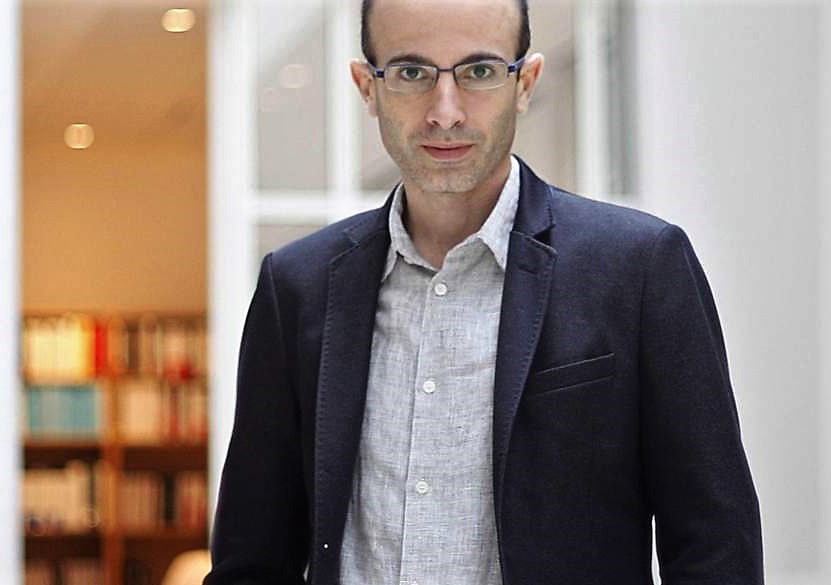
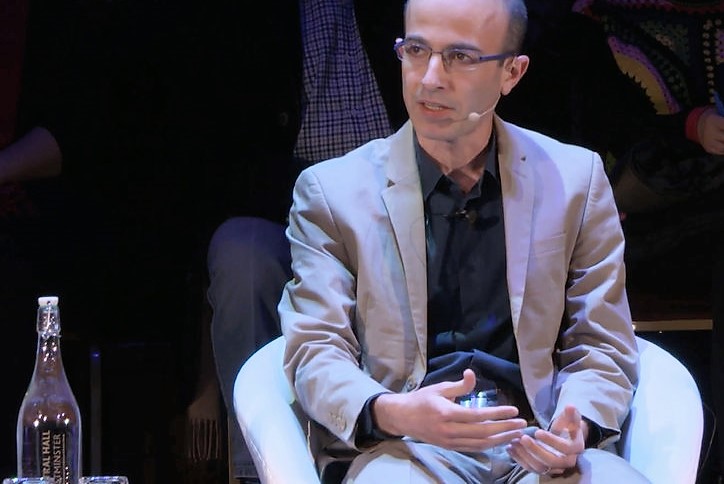
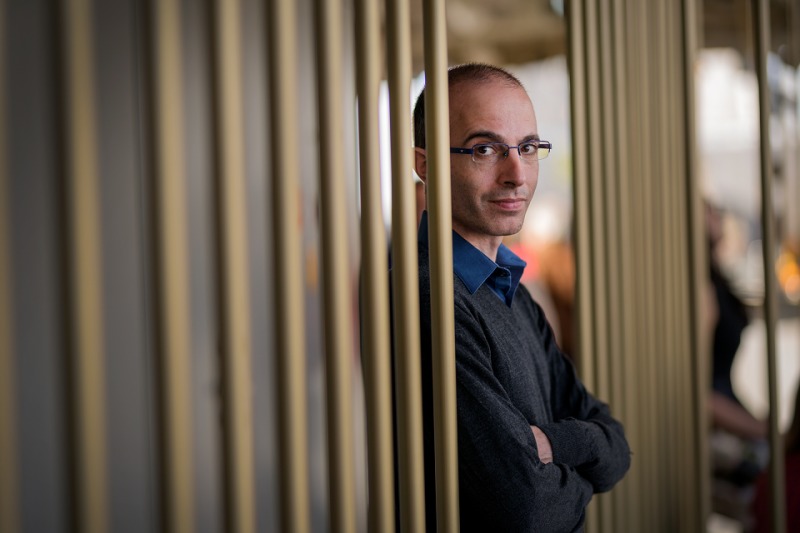
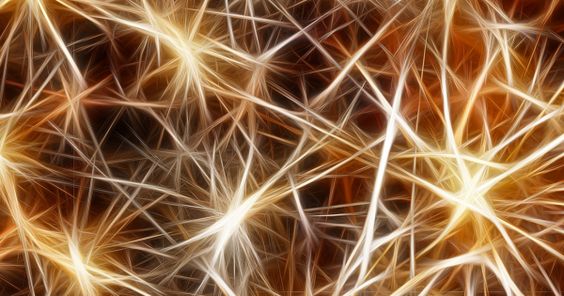

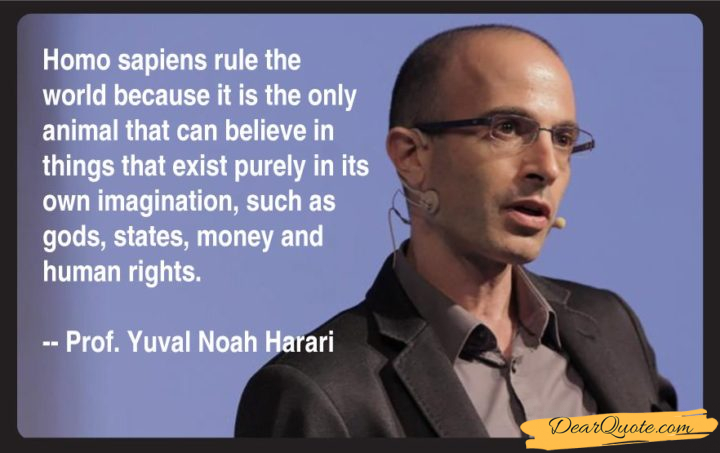
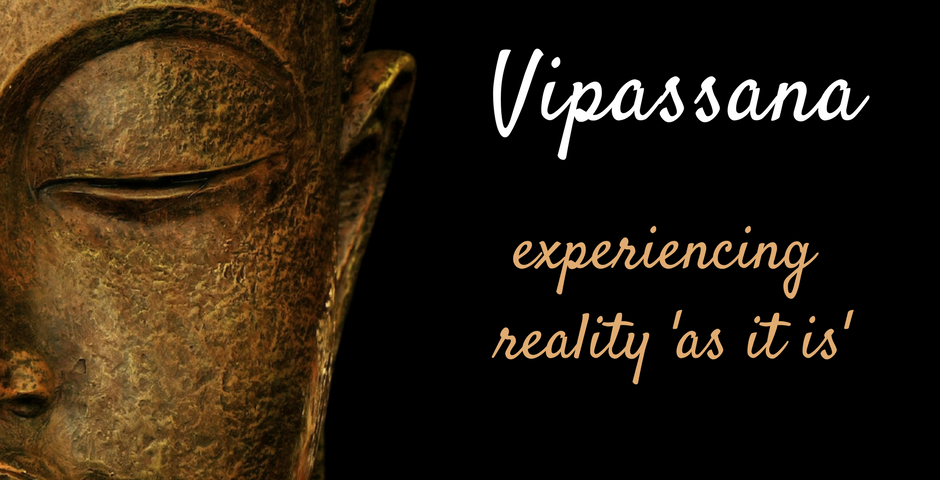
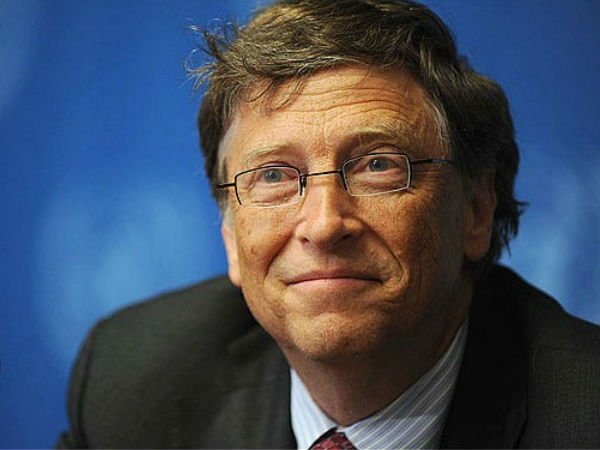





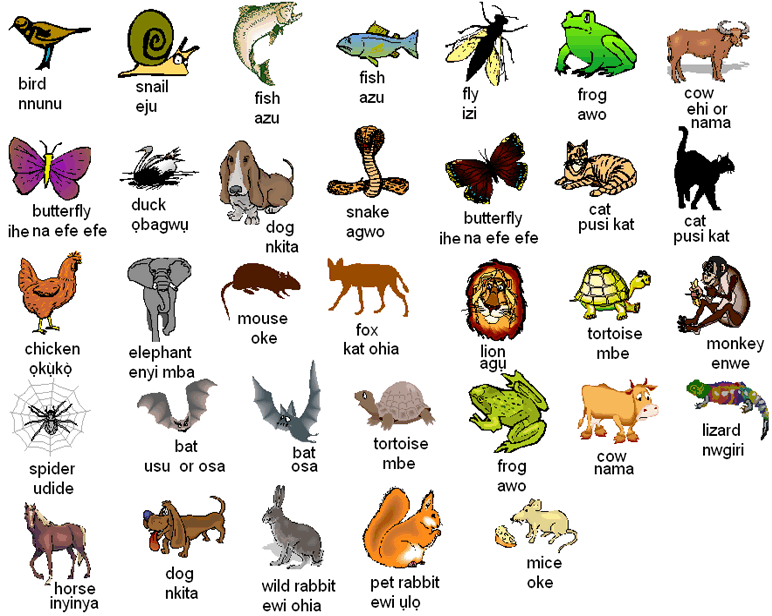

コメント
初めまして
非常にこのサイトを参考にして英語を学ばせて頂いてます
私はユヴァルノアハラリ氏のファンでYOUTUBEのそれで英語を勉強しておりますが、ユヴァル氏のオンラインコースの翻訳や他の動画の翻訳もお願いしたいです
MMMMさま
コメントならびにリクエストをありがとうございます。ご要望にお応えしたいのですが、おっしゃる “オンラインコース” の意味がわかりません。具体的にURLなどでご教示願えないでしょうか?よろしくお願いいたします。
トコシエ
https://www.youtube.com/playlist?list=PLfc2WtGuVPdmhYaQjd449k-YeY71fiaFp
これなのですが、これは「サピエンス全史」の内容をそのまま講義として公開している非常に面白いものであるので、トコシエ様が興味を持った部分を訳してくれたら幸いです
よろしくお願いします
MMMさま
ありがとうございます。
なんか若いですねぇ、ハラリさん。
それにしても大量だ
いつとはお約束できませんが、面白そうなやつを見つくろって記事にしようと思います。